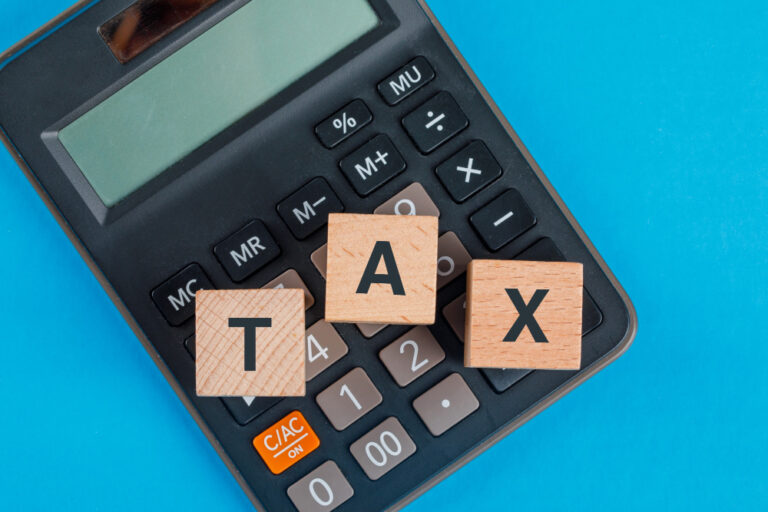VAT Registration South Africa: When and How to Register
VAT Registration in South Africa is one of the most important compliance steps for business owners — but many aren’t sure when it becomes mandatory or how to do it properly. Whether you’re a freelancer, consultant, SME, or scaling startup, understanding your VAT obligations can save you from costly penalties and even help you improve cash flow.
In this guide, we explain when VAT registration is required, when voluntary registration makes sense, how to register with SARS, and common pitfalls to avoid.
💡 What Is VAT?
Value-Added Tax (VAT) is a 15% consumption tax applied to most goods and services in South Africa. As a VAT-registered business, you act as a tax collector on behalf of SARS — adding VAT to your sales (output VAT) and claiming back VAT on qualifying expenses (input VAT).
VAT is a critical part of South Africa’s tax system and must be handled carefully to remain compliant.
✅ When Is VAT Registration Mandatory?
You must complete VAT registration in South Africa if:
- Your total taxable turnover exceeds R1 million over any 12 consecutive months; or
- SARS believes you will exceed the R1 million threshold in the next 12 months
This is called compulsory VAT registration. It’s not optional — it’s a legal requirement under the VAT Act.
🔎 Example:
Thabo runs a construction business. His total turnover over the last 12 months reached R1.2 million. Even if his profit is small, SARS requires him to register for VAT. Failure to do so could lead to backdated VAT charges and penalties.

🤔 What About Voluntary VAT Registration?
You can voluntarily register for VAT if your taxable turnover has exceeded R50,000 in the past 12 months, but is still under R1 million.
Voluntary VAT registration is beneficial if:
- Your clients are VAT-registered companies (e.g., B2B service providers)
- You incur input VAT on expenses like tools, software, or equipment
- You want to appear more credible for tenders, funding, or corporate work
💼 Example:
Zanele is a freelance graphic designer earning R120,000 per year. She works with corporate clients who are VAT vendors. Voluntary VAT registration allows her to claim VAT on software subscriptions and issue VAT invoices — boosting her cash flow and credibility.
🚨 What Happens If You Delay VAT Registration?
Delaying VAT registration in South Africa beyond the R1 million threshold has serious consequences:
- Backdated VAT liabilities: SARS may charge VAT on prior sales, even if you didn’t collect it
- Penalties and interest: These are added on top of unpaid VAT
- SARS enforcement: You could face criminal penalties for non-compliance
- Cash flow impact: You may have to pay 15% VAT out-of-pocket on invoices already issued
⚠️ Bottom line: Ignoring VAT obligations doesn’t save money — it creates costly problems.
📅 How Often Do You Submit VAT Returns?
Once registered, you must file VAT201 returns on a regular schedule. There are three main categories:
- Category A: Monthly returns
- Category B: Every 2 months (most common)
- Category C: Every 6 months (typically for farmers or very low turnover businesses)
All returns are submitted via SARS eFiling.
📊 What Counts Toward the R1 Million VAT Threshold?
The R1 million threshold is based on gross turnover, not profit. It includes:
- Sales of goods and services
- Commission and consulting income
- Freelance or contract work
It excludes:
- Passive income (e.g., interest or dividends)
- Exempt supplies (e.g., residential rentals, certain financial services)
🧾 Important: Even if your business is not profitable, crossing the R1 million turnover line means VAT registration is mandatory.
❌ Common Mistakes Business Owners Make
1. Confusing Revenue with Taxable Supplies
Some forms of income are exempt and don’t count toward the threshold. Always check whether your revenue qualifies as taxable supplies.
2. Waiting for SARS to Notify You
By the time SARS flags your turnover, penalties may already apply. Be proactive and monitor your own sales trends.
3. Charging VAT Without Being Registered
It is illegal to charge VAT unless you have a SARS-issued VAT number. You could be forced to refund the VAT to customers — and still owe SARS.
4. Thinking VAT Is Optional
If you pass the R1 million mark, VAT registration is not a choice — it’s the law.
✅ Should You Register for VAT Voluntarily?
Here’s a simple decision checklist:
| Question | Answer |
|---|---|
| Is your turnover over R50,000? | ✔️ Yes |
| Do your clients want VAT invoices? | ✔️ Yes |
| Do you pay VAT on business purchases? | ✔️ Yes |
| Do you apply for tenders or government contracts? | ✔️ Yes |
If you answered “yes” to most, voluntary VAT registration in South Africa could benefit your business — but speak to a tax professional first.
📝 How to Register for VAT with SARS
Here’s how to complete your VAT registration in South Africa via eFiling:
- Log into your SARS eFiling profile
- Go to “Register Tax Types”
- Select VAT, then follow the prompts
- Upload supporting documents:
- Company registration certificate (if applicable)
- Proof of turnover (bank statements, invoices)
- Proof of business address
- ID or registration documents
- SARS may schedule a verification appointment (online or in person)
- Once approved, you’ll receive your VAT number, and must begin charging 15% on all taxable sales
💼 Final Tip: Stay Ahead of SARS
Don’t wait until it’s too late. If your turnover is approaching R1 million — or you’re considering voluntary registration — consult with a tax practitioner to assess your options and avoid surprises.
👨💼 Sparrows Chartered Accountants: Your VAT Registration Partner
At Sparrows Chartered Accountants, we help South African businesses handle all aspects of VAT registration, including:
- Turnover assessment and compliance checks
- SARS eFiling setup and VAT number registration
- Ongoing VAT return submissions and reconciliation
- Expert advice on input VAT, invoicing, and reporting
Whether you’re registering out of obligation or strategic benefit, we ensure your VAT journey is stress-free and fully compliant.
Need help with VAT registration in South Africa?
Contact Sparrows Chartered Accountants today and stay on the right side of SARS.
Disclaimer: This article is intended for general informational purposes only and reflects the legislation and SARS practices in effect at the time of publishing. Tax laws are subject to change, and individual circumstances vary. Always consult a registered tax practitioner or financial advisor for advice tailored to your situation.







